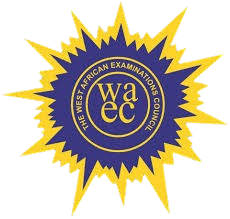Civic Education is a key subject in WAECxams. It helps students understand how to be responsible citizens and contribute positively to society. If you’re getting ready for the 2025/2026 WAEC exams, knowing the Civic Education syllabus will help you prepare effectively. This guide explains the syllabus in simple terms, shares tips for studying, and includes examples to make the topics easier to understand.
WAEC Civic Education Syllabus 2025/2026:
Here are the main topics and what you need to know:
1. Civic Rights and Responsibilities
- What civic rights are (e.g., the right to vote, freedom of speech).
- Responsibilities of citizens (e.g., obeying laws, paying taxes, helping the community).
- How to protect your rights and respect the rights of others.
2. Values
- Meaning and examples of values (e.g., honesty, respect, responsibility).
- Why values matter in society.
- How values influence personal behavior and national progress.
3. National Consciousness and Unity
- What national consciousness and unity mean.
- Why unity is important in a country with different cultures and religions.
- Ways to promote unity (e.g., showing tolerance, respecting others’ beliefs, celebrating diversity).
4. Leadership and Followership
- The meaning of leadership and followership.
- Qualities of a good leader (e.g., honesty, vision) and a good follower (e.g., loyalty, teamwork).
- How effective leadership and followership help society grow.
5. Political Participation
- What political participation means and why it is important.
- Different ways to participate in politics (e.g., voting, joining political groups, running for office).
- Benefits of being active in politics, like shaping decisions that affect your life.
6. Human Rights and the Rule of Law
- Definition of human rights and examples (e.g., right to life, right to education).
- The rule of law and why it is important.
- Problems people face in enjoying their rights (e.g., discrimination, corruption).
7. Environmental Issues
- Why protecting the environment matters.
- Problems caused by neglecting the environment (e.g., pollution, deforestation, climate change).
- What individuals and governments can do to protect nature.
8. Government Institutions and Their Functions
- The three arms of government: Executive, Legislature, and Judiciary.
- Roles and responsibilities of each arm.
- How these institutions help maintain law and order.
SEE ALSO:
Conclusion
The WAEC Civic Education syllabus for 2025/2026 is your guide to understanding what WAEC expects from you in the exam. By studying the topics, using practical examples, and practicing regularly, you can do well.
Remember, Civic Education is not just about passing an exam; it teaches you how to be a better citizen and make a difference in your community. Start your preparation now, and best of luck!

Leave a Reply